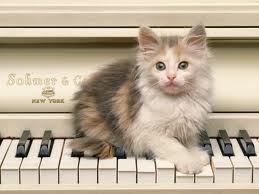54 posts
• Page 3 of 3 • 1, 2, 3
Nordic view on Bretons?
-

Solina971 - Posts: 3421
- Joined: Thu Mar 29, 2007 6:40 am
I just wonder, shouldn't the Dunmer totally hate the Argonians? Stupid lizards took my favorite races' land after all. I mean like a 30 point minus in disposition. And the Nords should like only respect the man races, the redguards and the orcs maybe. Stupid mer only got them trouble after all.
Yeah, there should have always been racism in the games. Never was quite prominent enough, imo.
I'd love to see Nordic merchants refuse to deal with Mer, or Dunmer cursing Argonians on the streets.
-

Thomas LEON - Posts: 3420
- Joined: Mon Nov 26, 2007 8:01 am
Yeah, just what was in my mind. In the other games there were just a little bit of rascism in dialogue. I want them to refuse giving you quests and similar stuff. Make you play many times to do everything.
-

Carlitos Avila - Posts: 3438
- Joined: Fri Sep 21, 2007 3:05 pm
And just the name. http://www.google.com/search?hl=en&safe=off&q=Breton&tbs=dfn:1&tbo=u&sa=X&ei=z8EXTv_aBouosAOwm6XVDQ&ved=0CCEQkQ4&biw=1308&bih=615.
"The Breton is a breed of draft horse. It was developed in Brittany, a province in northwest France, from native ancestral stock dating back thousands of years. The Breton was created through the crossbreeding of many different European and Oriental breeds. ..."
"The Breton is a breed of draft horse. It was developed in Brittany, a province in northwest France, from native ancestral stock dating back thousands of years. The Breton was created through the crossbreeding of many different European and Oriental breeds. ..."
Actually....
"The Bretons are an ethnic group located in the region of Brittany in France. They trace much of their heritage to groups of Brythonic speakers who emigrated from southwestern Great Britain in two waves from the 4th to 6th centuries into the Armorican peninsula, subsequently named Brittany after them.[1] The main traditional language of Brittany is Breton (Brezhoneg) and is spoken in Western Brittany. Today Breton is spoken by approximately 365,000 people, of whom about 240,000 speak it fluently.[2] Another linguistic minority is present in Brittany, namely speakers of the Gallo language; Gallo is only spoken in Eastern Brittany, where Breton has virtually never been. Breton is closely related to the Brythonic languages Cornish (closely) and Welsh (more distantly) while the Gallo language is a Romance language of the langue d'oil family. Bretons' native language is mainly French nowadays. Brittany and its people are included as one of the six Celtic nations. The actual number of ethnic Bretons in Brittany and France as a whole is difficult to assess as the French government does not take account of such statistics. The present day population of Brittany based on a January 2007 estimate is 4,365,500.[3]
In the late 4th century large numbers of British auxiliary troops in the Roman army may have been stationed in Armorica. The 9th century Historia Brittonum states that the emperor Magnus Maximus, who withdrew Roman forces from Britain, settled his troops in the province. Nennius and Gildas mention a second wave of Britons settling in Armorica in the following century to escape the invading Anglo-Saxons and Scoti. Modern archaeology also supports a two-wave migration.[4]
It is generally accepted that the Brythonic speakers who arrived gave the region its current name as well as the Breton language, Brezhoneg, a sister language to Welsh and Cornish.
There are numerous records of Celtic Christian missionaries migrating from Britain during the second wave of Breton colonisation, especially the legendary Seven founder-saints of Brittany as well as Saint Gildas. As in Cornwall, many Breton towns are named after these early saints. The Irish Saint Colombanus was also active in Brittany and is commemorated accordingly at Saint-Columban in Carnac.
In the Early Middle Ages, Brittany was divided into three kingdoms — Domnonia, Cornouaille (Kernev), and Bro Waroc'h (Bro?rec) — which eventually were incorporated into the Duchy of Brittany. The first two kingdoms seem to derive their names from the homelands of the migrating tribes in Britain, Cornwall (Kernow) and Devon (Dumnonia). Bro Waroc'h ("land of Waroch") derives from the name of one of the first known Breton rulers, who dominated the region of Vannes (Gwened). The rulers of Domnonee, such as Conomor, sought to expand their territory, claiming overlordship over all Bretons, though there was constant tension between local lords.[citation needed]
Bretons were the most prominent of the non-Norman forces in the Norman invasion of England. A number of Breton families were of the highest rank in the new society and were tied to the Normans by marriage.[5] The Scottish Clan Stewart and the royal House of Stuart have Breton origins."
-

Paul Rice - Posts: 3430
- Joined: Thu Jun 14, 2007 11:51 am
54 posts
• Page 3 of 3 • 1, 2, 3
